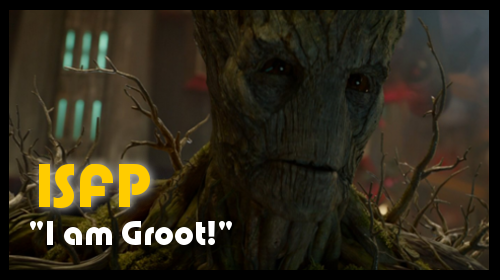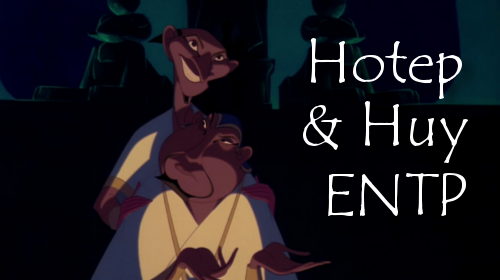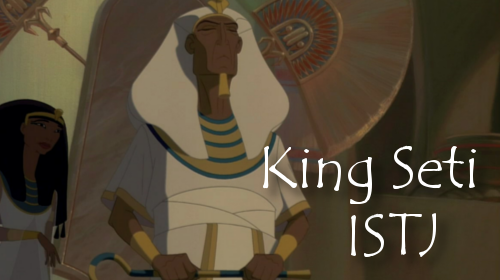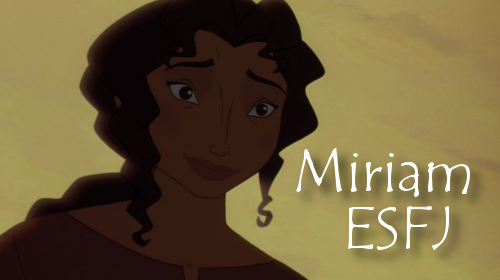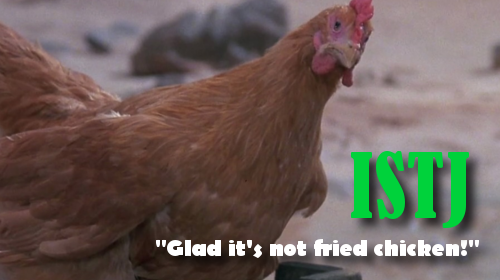ISFP, the Composer, the Seeker, the Virtuoso
Like Gamora, Groot doesn’t give us a lot of insight into what’s going on inside his head. I bounced back-and-forth between ISFP and INFP until I finally settled on the former, and I could still be wrong. He’s my favorite character, so I don’t know if I wanted him to be an INFP just because I am (hi, I’m an INFP!), or if he’s my favorite character because he really is an INFP.
Kind of a chicken-and-the-egg thing. Or acorn-and-the-tree.
Anyway, I think the evidence points to him being a Sensor over an Intuitive, so let’s all be Groot for a moment, shall we?
Dominant Function: Introverted Feeling (Fi), “Evaluate the Experience”
 Groot lives in his own happy, contented place. He’s very rarely bothered by any of the activity around him. He fights for his friends because they’re important to him, but most of the time, he’s doing his own thing, enjoying the world on his own terms.
Groot lives in his own happy, contented place. He’s very rarely bothered by any of the activity around him. He fights for his friends because they’re important to him, but most of the time, he’s doing his own thing, enjoying the world on his own terms.
Groot’s not very talkative, either. He has one phrase that he uses for every response, and only those who know him well understand what he means. It also speaks to his strong sense of individual identity that the only words he chooses to use are those that express who he is.
He can bust out the rage when it’s time to fight, but he’s also very tender towards others. He uses his powers to heal Drax after his fight with Ronan and to produce light to guide his friends through Ronan’s ship. In the end, Groot finds his friends important enough to sacrifice himself for.
Auxiliary Function: Extraverted Sensing (Se), “Experience the Experience”
 Groot is quite literally a force of nature. He can be tender and fierce from one moment to the next. He’s adaptable and can change his form to suit the needs of the current situation, whether to fight his enemies or heal his friends. He goes with the moment, one day fighting Gamora and the next day fighting alongside her.
Groot is quite literally a force of nature. He can be tender and fierce from one moment to the next. He’s adaptable and can change his form to suit the needs of the current situation, whether to fight his enemies or heal his friends. He goes with the moment, one day fighting Gamora and the next day fighting alongside her.
Groot enjoys small, delightful sensory experiences, whether it’s sticking his head in a fountain or giving a flower to a little girl—or being distracted by chewing on leaves growing out of his arm. Continue reading
